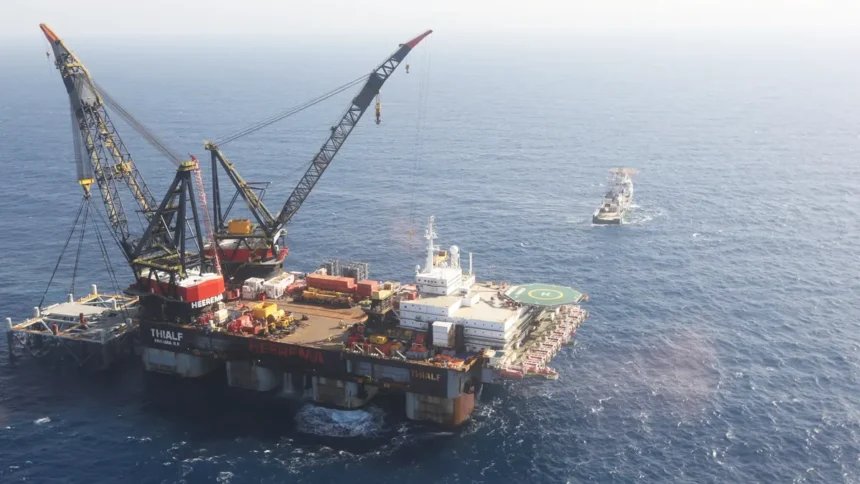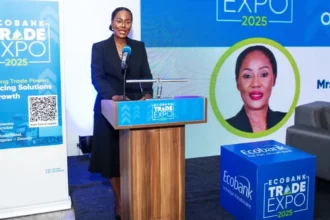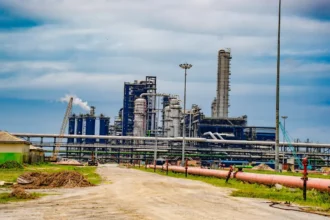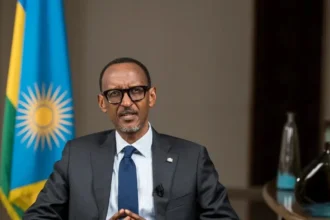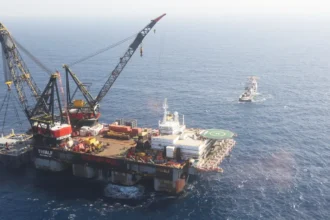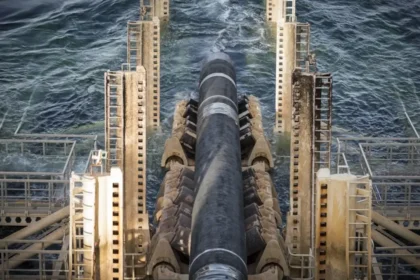In a significant boost to Guinea-Bissau’s ambitions to develop its offshore energy sector, Chevron has officially entered the country’s exploration landscape. Through its wholly owned subsidiary Chevron Guinea Bissau Exploration I, Ltda., the company has acquired two high-potential offshore blocks Block 5B (Carapau Exploration Permit) and Block 6B (Peixe Espada Exploration Permit) located within the MSGBC Basin (Mauritania, Senegal, Gambia, Guinea-Bissau and Conakry).
Chevron will operate both blocks with a 90% interest, while Petroguin, the national oil company of Guinea-Bissau, retains the remaining 10%. This move positions Chevron as one of the first major international operators to secure deepwater exploration acreage in the country.
A vote of vonfidence in Guinea-Bissau’s energy future
The entry of Chevron underscores the growing confidence of global energy investors in Guinea-Bissau’s offshore potential. For a nation whose oil and gas activity has remained limited to date, the move marks a turning point.
According to the African Energy Chamber (AEC), Chevron’s decision reflects not only the geological promise of the MSGBC Basin but also the country’s progress in creating an investor-friendly regulatory and fiscal framework. The MSGBC Basin’s deepwater blocks remain largely under-explored, yet recent discoveries in neighboring Senegal and Mauritania have sparked renewed interest across the region.
Economic impact and strategic partnerships
Chevron’s investment is expected to strengthen Guinea-Bissau’s position as an emerging petroleum and gas destination and attract additional foreign direct investment (FDI). Beyond exploration, the company has pledged to work closely with Petroguin to advance local capacity through training programs, technology transfer, and workforce development initiatives. This partnership model mirrors a broader shift among African energy producers emphasizing local content development, skills transfer, and sustainable growth alongside resource extraction. By combining Chevron’s technical expertise with Petroguin’s national mandate, the collaboration aims to build a foundation for long-term industrial and human capital development.
West Africa’s next frontier
Chevron’s move aligns with a wider strategic reorientation by major oil companies toward high-potential frontier basins. Across West Africa, governments have introduced competitive fiscal terms, streamlined regulations, and shown a willingness to collaborate on infrastructure and local participation.
The MSGBC Basin, once overshadowed by mature petroleum provinces like Nigeria and Angola, is increasingly viewed as a frontier of opportunity. The basin’s deepwater prospects, favorable investment climate, and political stability have made it a magnet for pioneering operators eager to establish an early presence before large-scale commercial development begins.
A clear signal of Africa’s attractiveness
Chevron’s commitment to Guinea-Bissau highlights the continent’s growing attractiveness to major investors,
said NJ Ayuk, executive chairman of the African Energy Chamber.
It is a clear signal that African nations, when they create a stable and enabling investment environment, can attract world-class companies bringing expertise, technology, and capital. This is a win for Guinea-Bissau, for the MSGBC Basin, and for Africa’s energy future.
For Guinea-Bissau, the challenge now is to translate exploration success into tangible economic outcomes. With Chevron’s entry providing momentum, the country is better positioned to attract additional investors, strengthen its regulatory environment, and gradually establish itself as a credible player in Africa’s oil and gas landscape. The coming years could prove decisive. As exploration accelerates across the MSGBC Basin, Guinea-Bissau’s offshore sector once overlooked may soon emerge as one of West Africa’s most promising new energy frontiers. Chevron’s arrival is more than an investment; it is a vote of confidence that could redefine the country’s place on the regional energy map.

